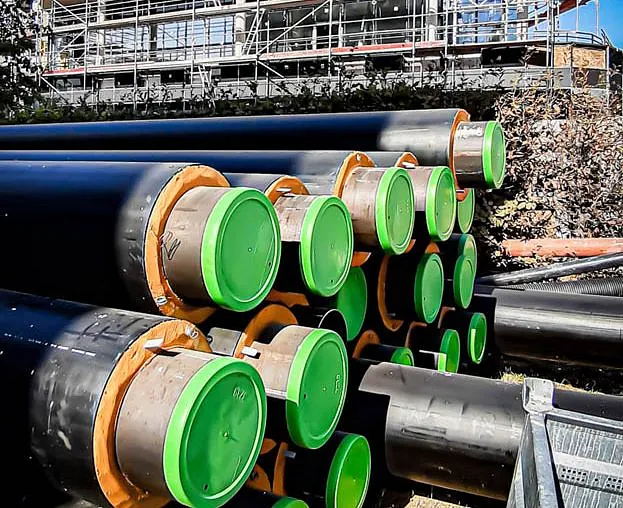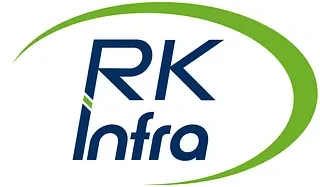
28/07/2025 0 Comments
Steel vs. Plastic Pipes: Which Is Right for Your Project? | RK Infra Products
When it comes to building reliable infrastructure—whether for municipal water supply, industrial systems, or residential plumbing: the type of pipe you choose matters more than ever. With the evolution of piping technology, the decision is no longer limited to traditional materials like steel. Today’s projects demand solutions that balance strength, flexibility, installation efficiency, and long-term durability.
When it comes to infrastructure and construction projects, selecting the right type of piping is crucial. At RK Infra Products, we understand that the choice between steel and plastic pipes can significantly impact your project's cost-efficiency, durability, and environmental footprint.
Below, we break down the key differences between steel and plastic pipes to help you make an informed decision.
1. Strength & Durability
- Steel Pipes:
Known for their exceptional strength, steel pipes are ideal for high-pressure applications and structural stability. They're resistant to extreme temperatures and mechanical stress, making them perfect for industrial, oil & gas, and heavy-duty water transport systems. - HeatFlex / FibreFlex / FibreFlexPro
These multi-layer composite pipes offer an ideal balance of flexibility and strength.- FibreFlex is reinforced with fiber mesh for durability in low to medium-pressure systems.
- FibreFlexPro is designed for higher temperatures and pressures, suitable for advanced plumbing.
- HeatFlex offers enhanced thermal stability for hot water and heating systems.
RK Infra Products’ Advantage:
We provide high-grade galvanized and steel pipes designed to meet the highest industry standards, with protective coatings that increase their lifespan in harsh environments.
2. Corrosion & Chemical Resistance
- Steel Pipes
While incredibly strong, steel pipes require galvanizing or coating to protect against rust, especially in humid, saline, or chemical-prone environments.
- HeatFlex / FibreFlex / FibreFlexPro
These pipes offer intrinsic corrosion resistance, even in aggressive environments. They are:- Non-reactive to most chemicals
- UV-stabilized (FibreFlexPro)
- No risk of internal scaling or rusting
Why RK Infra Products?
We supply both coated steel and advanced composite pipes, giving you options for every corrosion scenario: from salt-heavy borewells to high-chlorine municipal systems.
3. Installation & Handling
- Steel Pipes
- Durable but heavy.
- Requires welding, threading, or flanging, along with skilled labor and lifting equipment.
- Ideal for long-term setups with less need for relocation.
- HeatFlex / FibreFlex / FibreFlexPro
- These are lightweight, flexible, and easy to install.
- Quick jointing with push-fit or compression fittings
- Lower manpower and machinery requirement
- Easy to route around corners and confined spaces
RK Infra Advantage: Our pre-fabricated steel assemblies save time on site. And our FibreFlexPro systems come with complete installation kits, ensuring plug-and-play convenience.
4. Trenching & Installation Requirements
When installing underground piping systems, trench design plays a significant role in overall labor, time, and cost. The type of pipe, steel vs. plastic composite, directly impacts trench width, depth, bedding material, and flexibility during installation.
- Steel Pipes:
- Rigid, Heavy-Duty Installation
- Trench Width: Wider trenches are typically required to accommodate pipe rigidity, handling equipment, and proper bedding material.
- Trench Depth: Deeper trenches may be needed depending on pipe diameter and pressure requirements.
- Steel is not flexible, so straight trench lines are essential.
- Bedding & Backfill: Requires engineered bedding, often with compacted sand, gravel, or crushed stone for structural stability.
- Misalignment or poor bedding can lead to long-term joint stress.
- Machinery Required: Due to its weight, steel piping requires cranes, winches, or excavators for handling and placement.
RK Infra Pro Insight:
For municipal and industrial infrastructure, RK Infra’s steel pipe solutions are paired with pre-tested trenching specs, ensuring structural integrity and reduced maintenance risks.
- HeatFlex / FibreFlex / FibreFlexPro:
- Flexible, Lightweight Trenching
- Trench Width: Narrower trenches are sufficient thanks to the pipe’s flexibility and light weight, reducing excavation time and cost.
- Trench Depth: Often shallower, as composite pipes can absorb movement and adjust to ground shifts. Bends and curves can be installed without rigid trench shaping.
- Bedding & Backfill: Requires less stringent bedding, usually fine sand or selected soil.
- Pipes can tolerate minor imperfections in trench alignment without cracking or stress.
- Manual Handling: In many cases, these pipes can be installed without heavy machinery, especially for residential or agricultural projects.
RK Infra Installation Support:
We provide on-site guidance and trenching specs for all composite pipe systems, ensuring quick, efficient, and low-disruption installation: perfect for retrofitting and space-constrained projects.
5. Lifecycle & Maintenance
- Steel Pipes
- Can last 25-50+ years with proper maintenance.
- Periodic inspection for rust, joint integrity, and internal scaling is required.
- HeatFlex / FibreFlex / FibreFlexPro
- Low-maintenance and resistant to clogging, scaling, and corrosion.
- Lifespan ranges from 20–30 years, depending on usage and exposure.
Sustainability at RK Infra:
We promote recyclable steel and eco-friendly composite materials, combining strength and responsibility.
Conclusion
At RK Infra Products, we don’t just sell pipes: we engineer solutions. Whether your project demands the power and durability of steel or the innovation and flexibility of FibreFlexPro, we’re here to guide you with industry-grade products and expert consultation.


Comments
Leave a comment